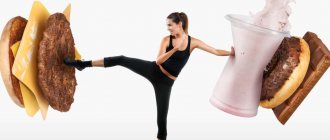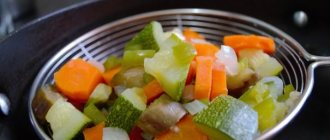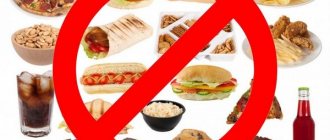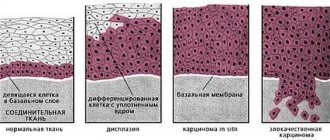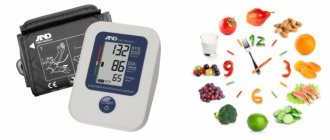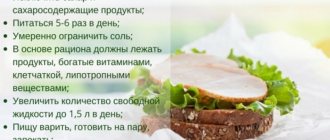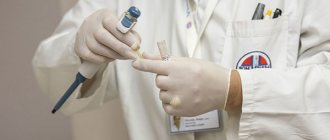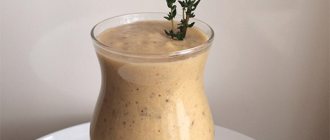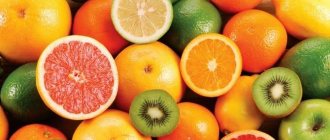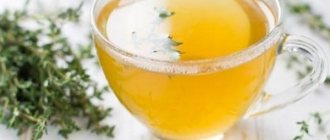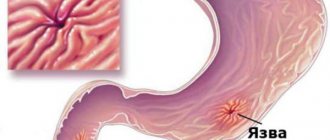5474
Bile is a liver secretion that has a greenish, yellowish or brownish tint, a bitter taste and a pungent odor. Bile is involved in the digestion process, eliminates the action of gastric enzymes, stimulates small intestinal motility and mucus production, promotes the digestion of fats and proteins, has an antimicrobial effect, and removes cholesterol and bilirubin from the body.
However, improper diet and consumption of “harmful” foods, diseases of the gastrointestinal tract and congenital features, various infectious diseases can lead to stagnation of bile in the ducts. This problem can be solved with the help of medications and a special diet.
Do not start a choleretic diet without consulting a doctor and ultrasound of the gallbladder. In the presence of stones, choleretic products are contraindicated, as they can sharply worsen the condition.
When to take action
Bile stasis can be chronic or acute. They also distinguish between icteric and anicteric, that is, depending on the location of the stagnation.
You can suspect that bile stagnation has occurred based on the following signs:
- frequent belching;
- constant fatigue;
- enlarged liver;
- pain in the right hypochondrium;
- unpleasant feeling of bitterness in the mouth;
- itching and rashes on the skin;
- constipation, or vice versa, diarrhea;
- drowsiness or insomnia;
- weight loss;
- strange coating on the tongue;
- bad breath.
As a rule, after eating fatty foods, the condition worsens, causing a strong feeling of nausea.
The icteric form is characterized by a change in skin color, darkening of the color of urine, clearing of stool and urticaria.
Most people attribute absolutely all symptoms to poor food quality, dental problems, vitamin deficiency, or associate them with other chronic diseases.
The problem with bile stagnation can result in even more dangerous pathologies. Its lack makes it impossible for the body to break down fat. In addition, some digestive enzymes cease to be produced, and as a result, fat enters the blood in its pure form. As a result, cholesterol accumulates in the body, gradually accumulates on the walls of blood vessels, pressure steadily increases, and the vessels become clogged.
The risk of developing diabetes increases because glucose is not converted to glycogen. Lack of bile can trigger osteoporosis, as the amount of calcium in the body decreases. Well, the most common scenario is the appearance of gall bladder stones.
What role does bile play in digestion?
Bile in the human body is produced by the liver, then it enters the gallbladder, which is a reservoir for its storage, and is released into the duodenum. During the period of eating, chewing or waiting for food, increased production of bile occurs. This process occurs continuously. Bile is considered an essential component for proper intestinal function. She takes an active part in the following processes:
- improves food digestion;
- stimulates intestinal motility;
- eliminates the adverse effects of gastric enzymes;
- promotes the absorption of fat-soluble vitamins;
- has a moderate antiseptic effect;
- eliminates the risk of developing putrefactive and fermentation processes in the intestines;
- process fats and fatty acids;
- removes excess cholesterol and bilirubin;
- helps remove harmful substances from the body.
When the production and outflow of bile is disrupted, the proper functioning of the gastrointestinal tract is disrupted, and a person is bothered by dyspeptic symptoms in the form of nausea, bloating, increased gas formation, and diarrhea.
To improve the functioning of the biliary and digestive systems, doctors recommend changing your diet and including choleretic products with a minimum amount of fat in the menu. It will enhance the motility of the organ, improve the flow of bile into the duodenum, stimulate contraction of the gallbladder muscles, and reduce the risk of stagnation.
What helps with bile stagnation
In fact, stagnation is not such a terrible and difficult condition, especially if the problem has appeared recently. Everything can be corrected with nutritional correction.
First of all, you need to eat food regularly, but only in small portions, and in no case overeat. It is recommended to reduce the amount of salt and sugar in the diet as much as possible. You will have to reduce your fat intake and drink enough free fluids. Food can only be consumed warm, but not hot. You will have to give up ice cream without fail.
Be sure to include foods that help dilute bile into your diet. Coffee is reduced, ideally completely eliminated from the diet, alcoholic beverages and smoking are completely eliminated. Don’t forget that you need to lead an active lifestyle, move more and play sports.
Nuts
Nuts have a pronounced anti-inflammatory effect, which is realized at the level of the entire human body.
Nuts also protect the mucous membranes of the gastrointestinal tract from mechanical damaging factors, bacterial flora and other pathogens (it is microorganisms that cause inflammation of the gallbladder).
Some scientific works note a slowdown in apoptosis (the programmed process of cell death) and a decrease in the risk of the formation of malignant tumors in various parts of the gastrointestinal tract with the regular addition of nuts to the diet.
Spanish scientists noted a decrease in the concentration of C-reactive protein and inflammatory mediators (interleukin-6) by 35% and 90%, respectively. This circumstance is important for people suffering from autoimmune pathologies of the gallbladder or having chronic cholecystitis with frequent episodes of exacerbations.
Nuts can be used as breakfast, snacks or as a food supplement. The most useful are:
- almond;
- Brazilian nut;
- hazelnut;
- cashew nuts;
- Walnut;
- pine nuts;
- pistachios.
Peanuts should also be included in this group. Although it belongs to the Legume family, it has physical and organoleptic characteristics similar to nuts.
Let's remember that in the last article we looked at 13 foods that improve digestion.
Nuts help suppress inflammatory processes in all organs of the gastrointestinal tract and prevent cancer.
Fresh fruits and vegetables
If there is stagnation, the patient’s diet must include fruits and vegetables. It is best that they enter the body fresh. The most useful include:
- beet;
- strawberry;
- tomatoes;
- bananas;
- spinach;
- carrot;
- figs;
- cabbage, any variety;
- asparagus;
- rhubarb;
- apples;
- olives;
- all types of greens, especially dill and cilantro;
- artichoke;
- citrus.
Among the berries, lingonberries and rowan berries can be distinguished. It is recommended to make all kinds of drinks and juices from them, which are best consumed in the morning.
Lemon
It has been proven that lemon increases the effect of local immunity factors, as well as the resistance of the gallbladder mucosa to increased pressure inside the lumen of the organ.
An additional feature is that citrus helps to normalize microflora and improve the functioning of the stomach and intestines. All this prevents the vertical migration of pathogenic flora.
In addition, lemon is widely used in folk medicine as a means to “cleanse” the gallbladder. But such “methods” have no scientific basis.
Lemon protects the gallbladder wall from additional destruction in the presence of inflammatory processes and prevents the development of complications.
Other products
In addition to the food products described above, there is a whole list that will help get rid of bile stagnation:
- fermented milk products, especially sour cream, cottage cheese and yogurt;
- butter, but in limited quantities;
- hard boiled eggs;
- whole grain cereals;
- boiled meat and fish;
- cheese;
- buckwheat, rice porridge;
- oatmeal;
- dried wheat bread.
It turns out that to normalize the functioning of the gastrointestinal tract, you can eat almost all foods and build a balanced nutrition plan.
Artichoke
No study has examined the effect of the vegetable on the intensity of stone formation in the lumen of the gallbladder.
However, it has been found that artichoke increases the rate of excretion of bile into the lumen of the gastrointestinal tract. Positive dynamics were noted in relation to hypotonic cholecystitis. A few hours after consuming the product, pain decreases and the volume of the organ decreases.
It is recommended to steam, grill or marinate the artichoke. When used in the form of a dietary supplement, consult a specialist.
Artichoke has a choleretic effect, dilutes and removes bile accumulated in excess from the lumen of the gallbladder.
Choleretic drinks
In addition to food, you can stimulate the excretion of bile with drinks. At the same time, you should never forget that the body should regularly receive free liquid, that is, not drinks, but clean, gas-free water. Lack of fluid in the body leads not only to dehydration, but also to stagnation of bile.
Healthy drinks for bile stagnation include:
- vegetable and fruit juices, especially apple and lemon, always diluted with water;
- hibiscus;
- plain water with the addition of a small amount of honey;
- decoction of vegetables: beets, carrots and cabbage.
It is also recommended to drink decoctions of medicinal herbs, but it is still better to consult a doctor first, since herbs can provoke the movement of stones if they are already present in the gall bladder. Immortelle flowers, St. John's wort, rose hips, barberry berries, and wormwood are suitable.
St. John's wort decoction should be drunk half a glass approximately 20 minutes before meals. However, this herb can cause constipation, so if you are prone to this problem, it is better to avoid drinking St. John's wort.
Drinks with corn silk are consumed one tablespoon before meals, 15 minutes. You should drink 3 times throughout the day.
Your doctor may recommend certain mineral water. In the future, it is necessary to drink herbal tinctures and mineral water as a preventive measure 2-3 times a year. The full course of treatment with water and tinctures should be at least 1 month.
Menu (Power Mode)
A healthy choleretic breakfast involves eating whole grain cereals (oatmeal, buckwheat, wild rice, millet) cooked in water or half-and-half milk. This dish stimulates the production and excretion of bile. Bran from oats and corn, as well as yesterday's bread, have a similar effect.
Choleretic foods include chicken and quail eggs, boiled soft-boiled or in the form of eggnog, which should be washed down with water or tea. To prepare a healthy drink, just beat fresh yolks with sugar or honey, if you are not allergic. Children can eat this dish if there are no pathogenic microorganisms in the eggs.
Patients need to include butter without salt in the menu, but the product may be present in only small quantities in the diet. Natural low-fat fermented milk products, which have a short shelf life, have a positive effect on digestion processes.
- Breakfast, lunch, dinner should not be plentiful, but moderate.
- The consumption of salt and sugar should be limited as much as possible.
- Choleretic products should be present in the diet every day.
- You can't overeat.
- You need to drink a lot of water (up to 8 glasses a day).
- The amount of animal fats in the diet should be reduced.
- Hot and cold are prohibited. Only warm foods are allowed.
In order for the gallbladder to always be healthy and in good shape, it is necessary to follow the following rules: normalize liver function, avoid overeating, avoid hypothermia, establish a nutritious and regular diet, and avoid stress. The state of the gastrointestinal tract is beneficially affected by adherence to sleep and rest, as well as exercise.
A gastroenterologist explains how the digestive system works, what needs to be done for various problems, and which choleretic herbs are best to take if it is not contraindicated.
Any damage to the pancreas leads to serious consequences and long-term, sometimes lifelong treatment. What foods should you include in your diet to avoid putting this vital organ at risk? "So simple!" presents a list of the most important ones.
A healthy diet is a powerful weapon in cancer prevention, capable of preventing 30-40% of all cancer cases. Find out what components it should consist of.
Author of the article
Nikolai Laduba
Nikolai Laduba loves to spend time actively and goes hiking. He is a big fan of science fiction. Nikolai’s son is only 7 years old, but he shares his father’s hobbies: what could be better than cozying up and watching the Star Trek series with the whole family? Our author approaches all issues in detail, as evidenced by the quality of his articles. Nikolai's favorite book is “The Black Prince” by Iris Murdoch.
corn, sunflower, flaxseed, olive. Be sure to include bran in its natural form or pre-steamed in all dishes (in the absence of diarrhea). It is better to eat whole grains and dried fruits daily. At night you need to consume fresh kefir. Below is a one-day menu, but based on it you can create a diet for a week.
| Breakfast |
|
| Lunch | |
| Dinner |
|
| Afternoon snack | |
| Dinner |
|
| For the night |
Tips for following a diet for cholecystitis
With such ailments as cholestasis, cholecystitis and pancreatitis, the patient should be especially careful about his own diet. It is very important to always remember the following points:
- Fried, fatty and spicy foods are unacceptable;
- It is worth limiting salty, spicy, smoked and pickled foods;
- you need to reduce the portion of food consumed, but increase the number of meals;
- attention should be paid to the temperature of the food;
- food should not be very hot or cold.
As a rule, when problems arise with the formation or outflow of bile, it is recommended to adhere to a certain diet. Such therapeutic nutrition does not have strict restrictions and you can eat without feeling much discomfort. Meat, pasta and other familiar foods are not prohibited.
A typical choleretic breakfast consists of low-fat cottage cheese or oatmeal with fruit and a decoction of rose hips. You can afford a protein omelet, which is optimally steamed. For lunch, it is advisable to eat vegetable soup or borscht in broth, but for dinner it is recommended to prefer vegetable salads or stews. As a snack, gastroenterologists advise using fruits with bile-excreting properties or drinking a glass of kefir. As a rule, diet is the basis for successful treatment of such problems, so the introduction of a balanced diet is the first step for every patient.
https://youtu.be/d3JKfoEu330
